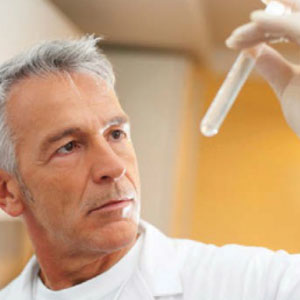Saliva probably doesn’t rate high on your amazement meter. You’re more likely to notice its absence and the dry irritation that results.
But you might be more impressed with this unsung bodily fluid if you knew all the things it does. It’s definitely a multi-tasker, performing a number of jobs (including aiding in digestion) that not only keep your oral health on track, but your general well-being too. And there are even new testing methods where saliva may even tell us when you’re not doing so well.
Here are 3 more tasks your saliva is doing for your mouth right now that truly make it amazing.
Cleansing. Your teeth’s chewing action shreds food so it’s easier to digest. But that also leaves behind tiny particles in your mouth. Bacteria feast on these particles (especially carbohydrates like sugar) and produce acid as a byproduct, which can increase your risk of tooth decay. Saliva serves as a kind of “rinse cycle” for your mouth, helping to wash a good bit of these errant particles down your throat and away from hungry bacteria.
Defense. Speaking of bacteria, your mouth is home to millions of them. While most are harmless or even beneficial, a fraction can harm your teeth and gums. Saliva is your first line of defense, emitting an antibody known as Immunoglobulin A that targets these bacteria. Saliva also produces an antibacterial substance called lyzozyme that prevents bacteria from growing.
Enamel Protection. Although it’s the strongest substance in the body, your teeth’s enamel can’t withstand the effects of mouth acid, the by-product of bacterial feeding and growth. Acid levels naturally rise after eating, but even this sudden rise can begin the process of demineralization, where minerals in enamel dissolve. Saliva saves the day by first neutralizing the acid and restoring the mouth’s normal pH in about thirty minutes to an hour. It also helps restore minerals in enamel, a process called remineralization. It’s all in a day’s work for this remarkable fluid.
If you would like more information on the importance of saliva to oral health, please contact us or schedule an appointment for a consultation. You can also learn more about this topic by reading the Dear Doctor magazine article “Saliva: How it is used to Diagnose Disease.”

